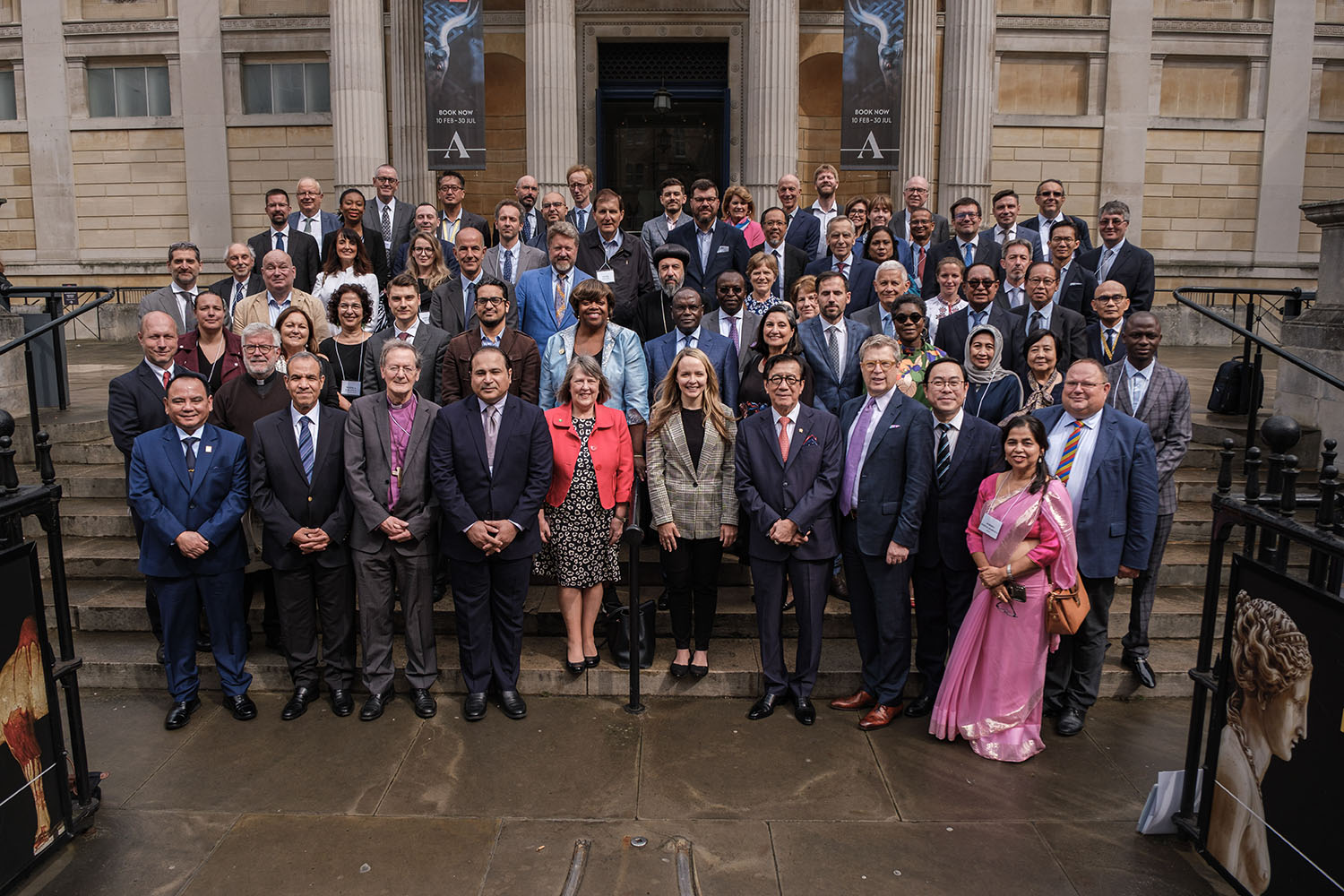Civilizational Perspectives on Human Dignity

“The world needs active protagonists of culture and human dignity, of all and for all.”
Ján Figeľ, former EU Commissioner and Deputy Prime Minister of Slovakia, issued this statement to a large audience of academics, government officials, religious authorities, and lecturers during a three-day conference focused on civilizational perspectives regarding human dignity. This event had a set purpose, not only to discuss human dignity and its implications in our modern day, but also to develop an actionable strategy for incorporating the masses into its promotion throughout the globe. A key consideration was the implementation of a United Nations Human Dignity Day.
With representation from dozens of countries present throughout the duration of the conference, a rich conversation ensued. While considering actionable strategies for improving global human dignity, the current threats to the concept were an important point of discussion. Silvio Ferrari, Emeritus Professor of Law at the University of Milan, noted the widespread confusion regarding the definition of human dignity.
Robert Řehák, Vice Chair of the International Religious Freedom or Belief Alliance, affirmed, stating that “many examples from our days show us that people don’t understand what human dignity means.”
Siti Ruhaini Dzuhayatin, Senior Advisor at the Executive Office on Human Rights Issues in Indonesia, pointed out the consistent opposition to human dignity initiatives. While the world’s current status in regard to polarization and skepticism is a contributing factor, Cezar Păvălaşcu, Director of the State Secretariat for Religious Affairs in Romania, remarked that the push for greater human dignity is a timeless, historical struggle.
When respect between diverse populations is fostered on an individual level, it enables human dignity to reach broader populations and increase in strength. Alastair Redfern, Chair of The Clewer Initiative, communicated how dignity can only flourish as humans build friendly, respectful relationships with those around them.
“I have my religion. You have your religion. That does not mean that we can’t live peacefully and in harmony,” said Amadou Camara, Member of the Gambia National Assembly.
Through mutual respect, the value of each individual in our communities becomes increasingly apparent. However, when that respect is not present, that value becomes difficult to discern even for the individual. Dicky Sofjan, Core Doctoral Faculty at Indonesian Consortium for Religious Studies, cited his career in discussing regions wherein religious communities remain deprived of their worth. Archbishop Angaelos, Coptic Orthodox Archbishop of London, similarly acknowledged the marginalized communities of our world as he offered a hopeful outlook.
“There is no monopoly on suffering. There is no monopoly on injustice. But there can be a shared voice if we focus on what brings us together, and that is human dignity,” he said.
Ambassadors, delegates, lobbyists, directors, academics, and other human rights advocates present at the conference had varying opinions about the proposition for a United Nations Human Dignity Day. However, the need for greater public awareness and activism supporting human dignity was a unifying sentiment.
“Every day should be human dignity day. Every day should be a day where we think about treating our fellow human beings in a way that we would like to be treated,” said Mervyn Thomas, Founder President of Christian Solidarity Worldwide.
Beatriz Argimón, Vice President of Uruguay, emphasized the need to educate the masses on the meaning of human dignity and its distinction from human rights. This argument was further built upon by Brett Scharffs, Director of the International Center for Law and Religion Studies, during his concluding remarks.
“This I believe: If we do not respect human rights, human dignity will die. If we do not respect human dignity, human rights will fail. We must think of these things as intrinsically linked.”
As the conference’s attendees, United Nations staff, and other influential groups in the formation of a United Nations Human Dignity Day continue to build a case for its instatement, all are invited to take steps in deepening their individual understanding of human dignity. Ferrari reminded the conference’s audience that this growth is attainable for all.
“I, and I imagine all of you, did not learn human dignity by reading United Nations declarations, but through encounters and experiences I had living within my family, spending time with my friends, and working with my colleagues.”
Fiona Bruce, Member of British Parliament, encouraged all people in both their attainment and support of human dignity through her closing statements.
“Wherever you are in the world, whatever your faith or not, you are not forgotten. You are not disregarded. You are not overlooked. You matter. You have dignity.”